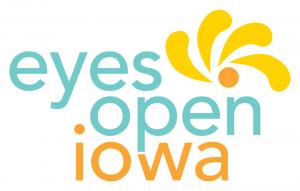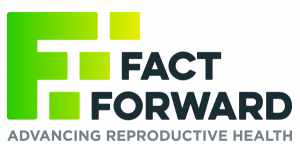Advocates staff provides technical assistance, training and resources to national, state, and local organizations regarding youth-centered reproductive and sexual health/rights/justice public policy and communications. Policy staff draft model legislation and policy briefs, track and provide in-depth policy analysis, and can support partners in building out advocacy strategies to improve policies and practices at the federal, state, and local levels. In addition, communications staff can assist with talking points, public speaking training, and training regarding media outreach. Staff is also available to assist organizations wishing to raise the visibility of young people and their experiences and needs through social or traditional media. For more information about public policy assistance contact Diana@advocatesforyouth.org. For more information about communications assistance contact Emily@advocatesforyouth.org
Training Hub
The Sex Education Collaborative Training Hub lists trainings for sex educators, facilitators, and other professionals on best practices for sharing important information with clients and the public. From teaching anatomy inclusively to effectively addressing bias in the classroom to addressing racial justice and equity in sex education, the Training Hub includes trainings, technical assistance, and policy support from state, regional, and national leaders in the field of sex education.
Please note: The Training Hub includes both in-person and online professional trainings. If you see a training you are interested in and it isn’t listed as virtual, please reach out directly to any of our members to find out what's possible!
Trainings Offered by State-Based and National Organizations
Displaying results 101 - 105 of 130At EyesOpenIowa, we specialize in helping educators, schools, and organizations deliver accurate, inclusive, and policy-aligned sexual health education. With decades of experience, our dedicated training and leadership teams work closely with you to develop a customized plan that meets your specific needs. Here's how we can support you:
Curriculum Alignment to Policies and Standards We ensure your curriculum is fully aligned with state and federal policies, as well as the latest educational standards, so your program is compliant and impactful.
Curriculum Development We collaborate with you to create a robust, tailored curriculum that incorporates the latest research and best practices, ensuring it is both effective and engaging.
Curriculum Review for Cultural and LGBTQ Inclusivity Our team assesses your content for cultural relevance and LGBTQ inclusivity, providing recommendations that foster an environment of respect and understanding for all students.
Curriculum Review for Medical Accuracy We verify the medical accuracy of your curriculum, ensuring all health-related content is up-to-date and evidence-based, promoting healthy decision-making.
Scope and Sequence Development and Review We help you develop or refine your scope and sequence to ensure learning objectives are met in a logical, structured manner, maximizing educational impact.
Partner with EyesOpenIowa to elevate your curriculum with customized, expert support, ensuring it is comprehensive, inclusive, and meets the highest standards of educational excellence.
Reproductive Health 101
In this training, participants will gain a general understanding of reproductive health as it relates to teen pregnancy prevention. Topics include reproductive anatomy and physiology, adolescent growth and development, HIV/STIs, and contraceptives.
This training is designed for:
- Educators new to teaching sex education
- Anyone who wants a refresher on the basics
- Health care professionals
- Indicator 1 (6-12): Explain fertilization, implantation, conception, and how pregnancy occurs.
- Indicator 2 (6-12): Demonstrate the steps necessary for effective external and internal condom use and how to access condoms. (S)
- Indicator 4 (6-12): Explain methods of contraception, including the latest medical advances that are popular among young people.
- Indicator 6 (6-12): Identify three federal and/or state laws that impact young peoples’ access to effective reproductive and sexual health care (e.g. age of consent for services, confidential access to health care services, and access to condoms)
- Indicator 1 (6-12): Describe HIV and three common STDs/STIs, and how each can and cannot be transmitted.
- Indicator 2 (6-12): Explain that many STD/STIs do not cause symptoms and the only way to know if you have one is to be tested.
- Indicator 3 (6-12): Explain the benefits of getting tested and treated for HIV and other STDs/STIs.
- Indicator 4 (6-12): Explain three facilitators and three barriers to STD/STI testing and treatment.
- Indicator 5 (6-12): Demonstrate the steps necessary for effective external and internal condom use and how to access condoms. (S).
- Indicator 6 (6-12): Describe the latest medical advances in HIV and other STDs/STIs prevention and treatment.
- Indicator 7 (6-12): Identify three medically accurate and youth-friendly resources for STD/STI and HIV prevention, testing, and treatment
- Indicator 1 (K-12): Describe how puberty prepares the human body for the potential to reproduce.
- Indicator 2 (K-12): List three physical, three social, and three emotional changes that occur during puberty.
- Indicator 3 (K-12): Identify three practices that students can adopt for maintaining healthy habits beginning during puberty.
- Indicator 1 (K-12): Explain three reasons why it is important to respond to every question students ask when teaching sex education.
- Indicator 2 (K-12): Demonstrate the ability to effectively respond to three different types of challenging questions. (S)
- Indicator 1 (K-5): Explain the benefits of teaching young children the medically accurate terms for genitals.
- Indicator 2 (K-12): Demonstrate the ability to use medically accurate terms for sexual and reproductive anatomy, including all external genitals. (S)
- Indicator 3 (K-12): Explain the function of the individual sexual and reproductive body parts and how they typically work.
Managing Sensitive Issues: Effectively Responding to Controversy
Educators and others who work with youth often feel anxious about addressing sensitive issues—such as topics associated with strong personal values—in the classroom, whether they are part of a curriculum or surface in a general class discussion. Sexuality, alcohol and other drugs, politics, race, and bullying are just a few examples of issues that, if not handled sensitively, could result in alienated students or angry parents contacting the school or agency. The most common topic targeted in this training is sexuality education, but the focus can be adjusted based on participants' needs. Participants identify the sensitive topics they face in their workplace and have the opportunity to assess their personal values, consider student diversity, and build the skills needed to answer difficult questions. The facilitator shares a set of proven strategies for responding to questions related to sensitive topics and harassing/bullying statements, and participants practice effective responses to build their skills.
Objectives of this course:
- Identify a range of personal and community-based values.
- Explore a set of effective facilitation techniques for addressing difficult issues.
- Practice using the techniques to effectively answer a variety of difficult questions.
- Practice using the techniques to effectively respond to harassing/bullying comments.
- Develop a personal plan of action to master the facilitation practices.
Visit ETR's Training & TA Form to submit your request and receive cost information.
- Indicator 1 (K-12): Demonstrate three techniques to create an inclusive and affirming learning environment. (S)
- Indicator 1 (K-12): Demonstrate the ability to build rapport with students. (S)
- Indicator 2 (K-12): Demonstrate three student-centered instructional approaches that support a variety of learning styles. (S)
- Indicator 3 (K-12): Explain the differences between positive vs. shaming approaches to teaching sex education.
- Indicator 1 (K-12): Explain three reasons why it is important to respond to every question students ask when teaching sex education.
- Indicator 2 (K-12): Demonstrate the ability to effectively respond to three different types of challenging questions. (S)
- Indicator 3 (K-12): Explain the importance of educators refraining from sharing their personal values when implementing sex education.
- Indicator 4 (K-12): Demonstrate the ability to respond effectively to students’ values-based comments and questions. (S)
Advocates for Youth can offer technical assistance on a wide range of topics including district, state, and national policy, best practices in teaching sexuality education, creating more LGBTQ+ inculsive schools and organizations, increasing the capacity of health care providers to meet the sexual health needs of adolescents, youth-adult partnership models, writing curricula, and/or discrete lesson plans, etc. Please contact us so we can learn more about your needs and how we can best support your efforts.
Additional Trainings offered by out-of-state organizations
- ‹ previous
- 2 of 42
- next ›
MOASH provides support with policy development, interpretation, and implementation at the state, school district, and K–12 school building levels. Policy topics include primarily sexual health education, sexual and reproductive health rights, and LGBTQIA+ inclusion and affirmation. MOASH works alongside communities to address their unique concerns and needs. Support may include technical assistance, training, and resources. For more information about policy assistance, please contact MOASH’s Advocacy Director, Kelly Stec at kelly.stec@moash.org




